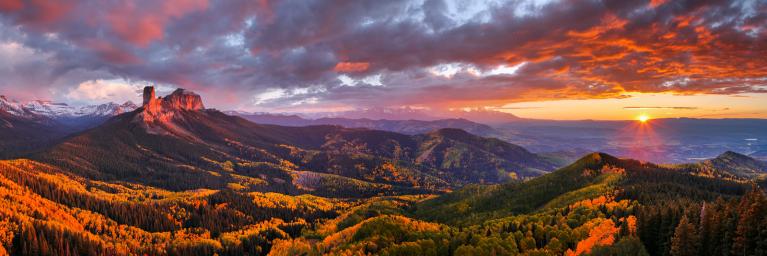The Colorado Department of Natural Resources and the Colorado Search and Rescue Association praised the Colorado Senate Agriculture and Natural Resources Committee’s unanimous support for the “Strengthen Backcountry Search and Rescue in Colorado Act” today, the first step as the bill moves through the legislative process.
This needed legislation supports the initial steps in redesigning the state-wide Backcountry Search and Rescue program through a study and stakeholder process, as well as a pilot program to provide mental health services to Backcountry Search and Rescue (BSAR) professionals.
“Colorado’s Backcountry Search and Rescue Teams are near and dear to my heart as someone who has worked alongside the brave men and women who provide such a vital service to the State of Colorado,” said Dan Gibbs, Executive Director, Colorado Department of Natural Resources. “Colorado’s population growth and increase in outdoor recreation is causing strains to our backcountry search and rescue teams. Simply put, the demand for BSAR is far outpacing the human and technical resources, and we owe it to our volunteer heros to review how this service is organized and supported. This important legislation will study how the increase of rescues are impacting the financial, logistical and emotional health of volunteer rescuers and our local sheriffs and governments.”
The state’s existing search and rescue program was originally designed for incidental backcountry rescues. Colorado now averages an estimated 3,600 search-and-rescue incidents per year, straining BSAR professionals - who are unpaid volunteers - and local governments charged with ensuring the safety of recreationists in the backcountry. A Colorado Parks and Wildlife study showed that 92% of Coloradans recreate outdoors, and 62% recreate in parks.
“Colorado’s Backcountry Search and Rescue teams are literally the safety net for the Colorado way of life and our outdoor recreation economy. Our incredibly dedicated teams respond whenever called to Colorado’s highest peaks, steepest canyons, raging rivers, and everywhere in between. Their goal is always to safely find and transport those lost, stranded, or injured in our beautiful outdoors. Please know that we will continue to respond day or night to assist anyone in need. The system is strained but not yet broken.” said Jeff Sparhawk, President, Colorado Search and Rescue Association.
“Backcountry Search and Rescue is often dangerous, and volunteers receive no compensation, healthcare, or mental health services. However, our teams are human and clearly can suffer the effects of witnessing extreme trauma or death and being on-call 24/7. We appreciate the Colorado legislature's consideration of this Bill and their guidance to see how we all can better support our backcountry search and rescue responders so that we can better provide these vital services for future residents and visitors to Colorado’s outdoors.”
No Colorado BSAR team charges for its services, so most depend on grants and donations to operate. BSAR professionals also cover their own costs, which amount to thousands of dollars annually. Roughly 2,800 unpaid BSAR professionals, serving on almost 50 non-profit BSAR teams, give an estimated 500,000 person-hours annually to support BSAR, our communities, and all of Colorado.
BSAR is currently a local issue, with sheriffs statutorily required to coordinate BSAR within their counties. The only state funding support for this important work is $350,000 in annual grants from the Department of Local Affairs Search and Rescue Fund. The majority of these funds are raised from a 25 cent surcharge on hunting and fishing licenses and motorboat, snowmobile, and OHV registrations. A small amount of additional funding is provided by the sale of Colorado Outdoor Recreation Search and Rescue (COSAR) cards.
To support your local and regional Backcountry Search and Rescue Teams, consider purchasing a Colorado Outdoor Recreation Search and Rescue card, $3 for a one-year card and $12 for five-year card.
